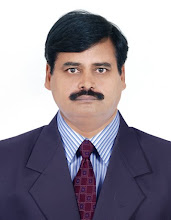Dear All
ABSTRACT
Water is everything and controls every activity and development of the people and area at all levels. At present water crises are alarming all over the world and nothing surprised even a world war occurs for this precious natural resource. It is the fact that more than 90% of the health issues are due to the un-potable water and around 70% of the disability prevails in the rural area. This has resulted for the roaring business and thus significantly depends upon the bottles than getting it freely in natural conditions. Consequences of climate change, global warming and the process of LPG (liberalization, privatization & globalization) resulted for irregular rains with significant variation from area to area. The cyclones with excess water and droughts with water scarcity significantly affect the development as well as the quality of life of the people and the area. Scarcity of water results for less development of the people and thus possesses towards vulnerable circumstances leading for their poor economical status. It is the fact that poverty is the cause and consequences of the disability. Poverty and disability are the real critical barriers for achieving the development. Availability of water results for better living environment with better nutrition & health care and thus minimizes the prevalence of the disability.
Prevention of disability is better than the rehabilitation as development of the people and area certainly improves the quality of life. The non affordability for the immunization, good nutrition and better health care during pre-natal, peri-natal and post natal certainly increases the disability. As a thumb rule, if the rainwater water is stored either on the surface or in the subsurface it significantly minimizes the water crises. The approach is that availability of potable water: improves quality of life by reducing the health issues, improves the food production, enhances economical status, better access for health & education, improves the employability, leads for better living with sustainability etc. Thus water on long term basis works for the prevention and empowerment of the people with disability.
The study made in some of the coastal villages of Andhra Pradesh has resulted for the improvement of the people covering the areas of social, medical and developmental. This is a long term approach and community based rehabilitation in multi-sectoral approach yields better results that the single sectoral approach. The concept of adopting the villages and addressing all the issues and need s of the people and areas works for the real development with better sustainability.
To conclude, water literally controls every activity on this earth and thus development of the people and area at all levels. As water helps to minimize the health issues and vulnerability for malnutrition, poor health care and poor immunization it works effectively for the prevention of the disability which varies from urban to rural area. The concept of adopting the villages and addressing in holistic approach with multi-sectoral model certainly works effectively for the prevention of the disability as around 70% of the prevalence of the disability comes from rural areas. This model can be replicated in other areas with flexibility suiting to the challenges and needs of the people as well as the area.
Looking forward..
PS: Paper presented at International Seminar
Wednesday, October 27, 2010
Subscribe to:
Post Comments (Atom)

No comments:
Post a Comment